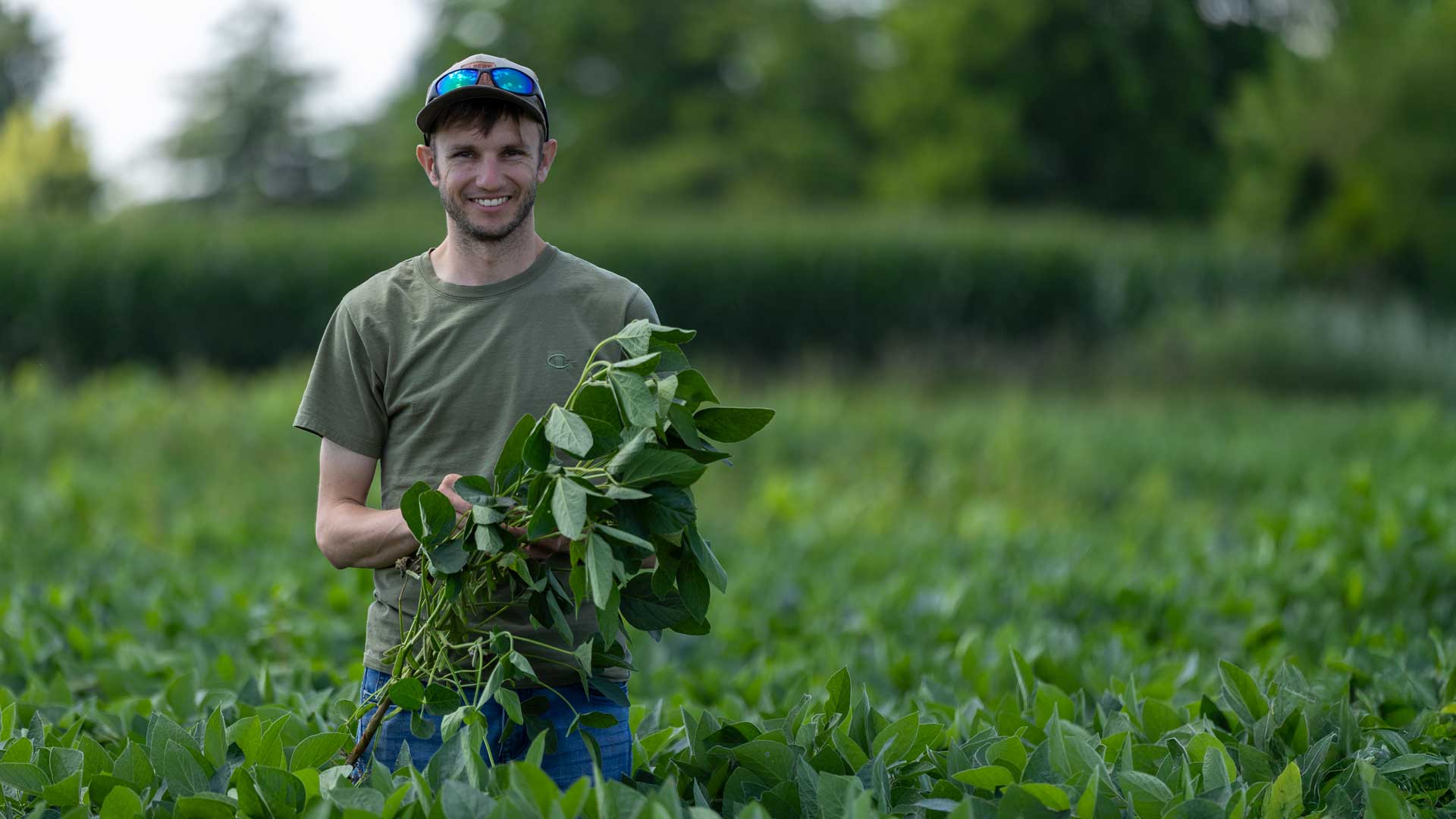
Ultimately, I hope that the research we conduct here can help farmers take a step towards bringing about a balance between sustainability and crop production to create agricultural systems that can perform multiple functions, beyond just simply being high yielding, including soil and biodiversity preservation as well as providing economic viability.
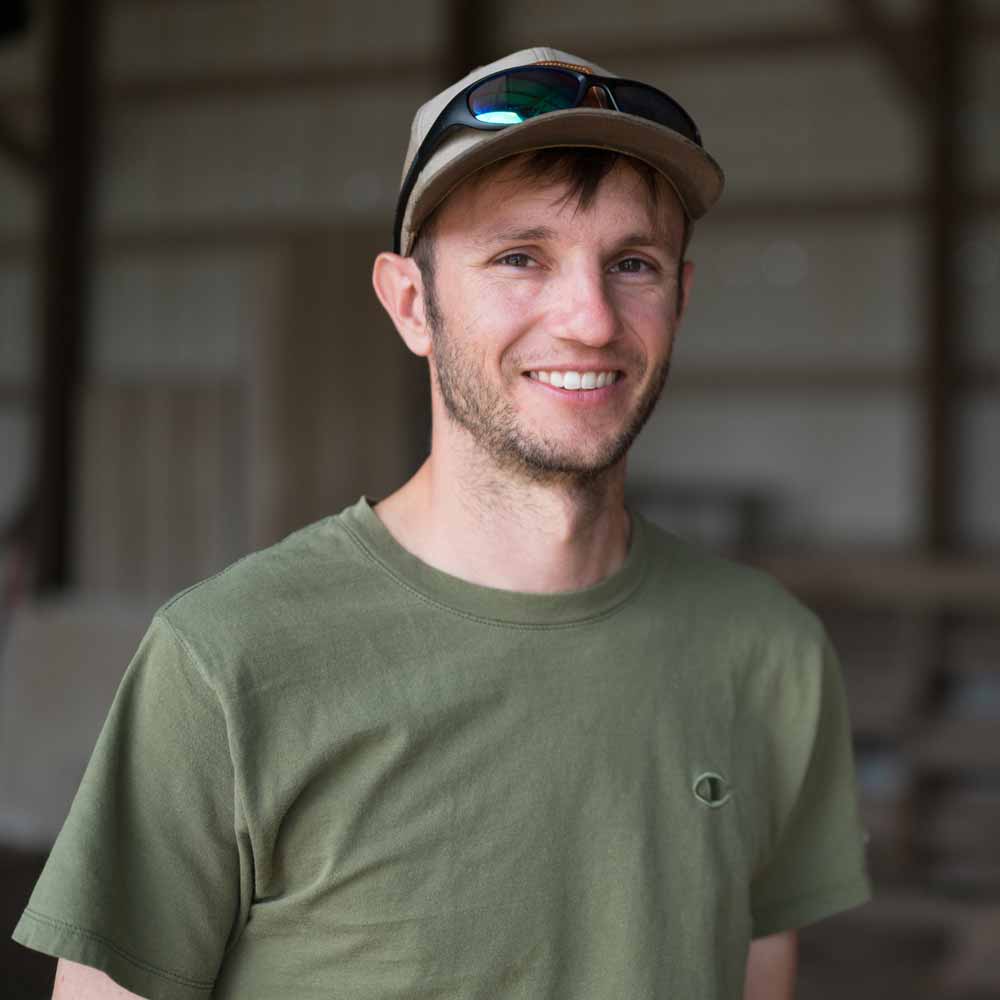
BIO
Ben Brockmueller, Researcher
Silva Lab
Education
M.S. in Agronomy (South Dakota State University)
Research Interests
I’m passionate about working together with farmers to develop agricultural systems that merge ecological and agronomic objectives. Current research objectives focus on minimizing tillage in organic cropping systems.
Personal Interests
Farming, bird watching, running, sports
Hometown: Freeman, SD
Tell us a little bit about your program (research/teaching):
I am a researcher working under Dr. Erin Silva. The focus of the work I am involved in is centered around supporting organic farmers in developing more productive and more sustainable farming operations. In particular, we are looking towards developing cropping systems that minimize tillage by using different ecological strategies and innovative tools to try and replace the functions of intensive tillage—primarily nutrient provisioning and weed management—within the system.
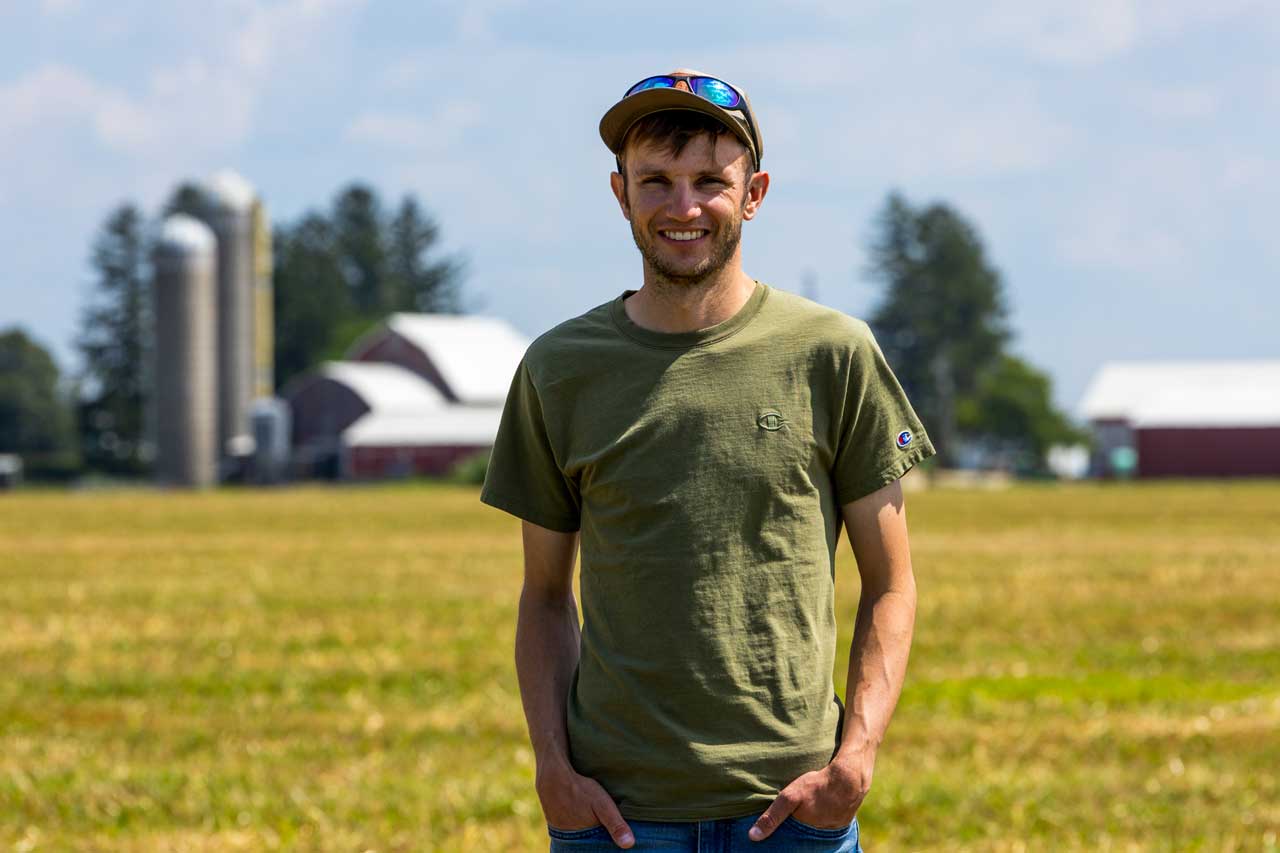
Tell us about your research on minimizing tillage in organic systems—what drew you to this specific challenge?
The issue of soil conservation has been important to me for a long time. Growing up on a farm in South Dakota, which can see a lot of wind erosion, practices such as no-till were emphasized. My M.S. research helped me to explore some of the tradeoffs between soil health practices particularly with cover cropping and nutrient cycling. After graduation, moving into work with organic reduced tillage systems seemed like a natural next step of diving deeper into thinking about how ecological processes can be managed to minimize tillage in the absence of synthetic chemicals.
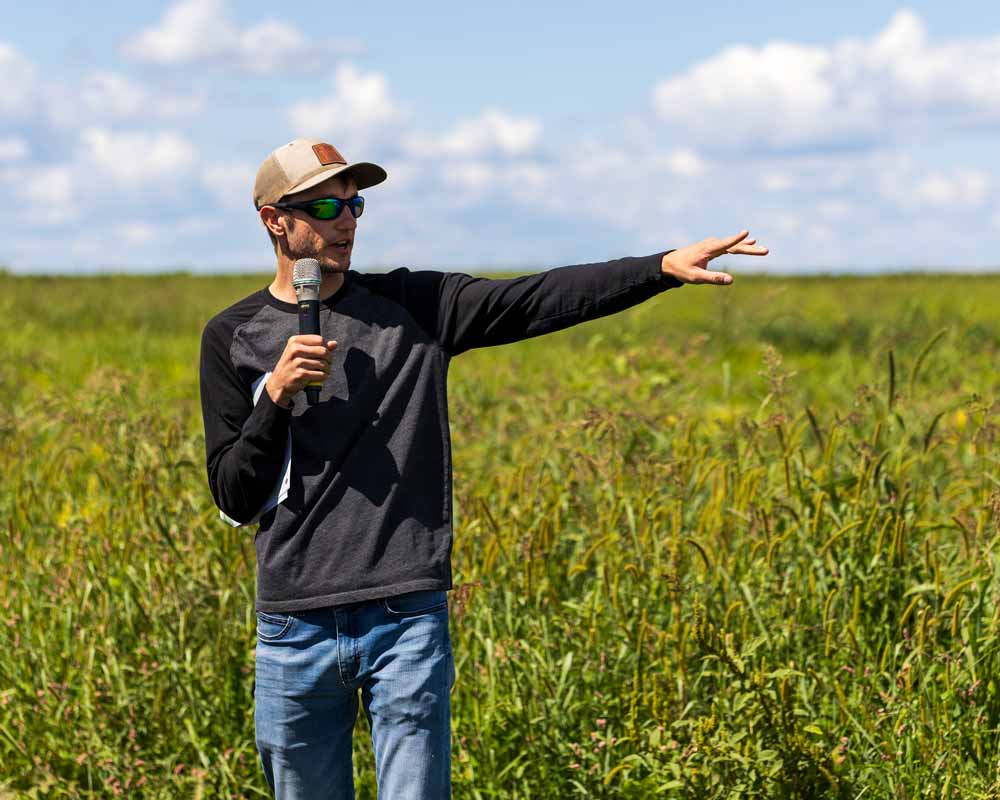
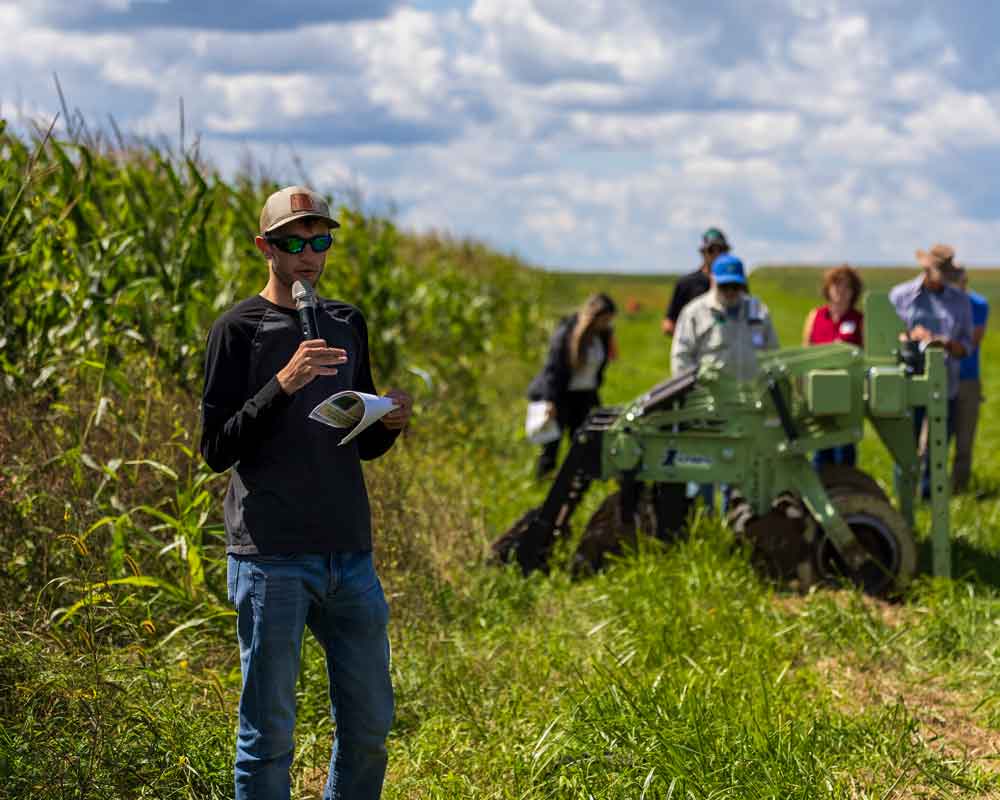
How do you envision your work with farmers changing organic agriculture practices in the next decade?
Ultimately, I hope that the research we conduct here can help farmers take a step towards bringing about a balance between sustainability and crop production to create agricultural systems that can perform multiple functions, beyond just simply being high yielding, including soil and biodiversity preservation as well as providing economic viability.
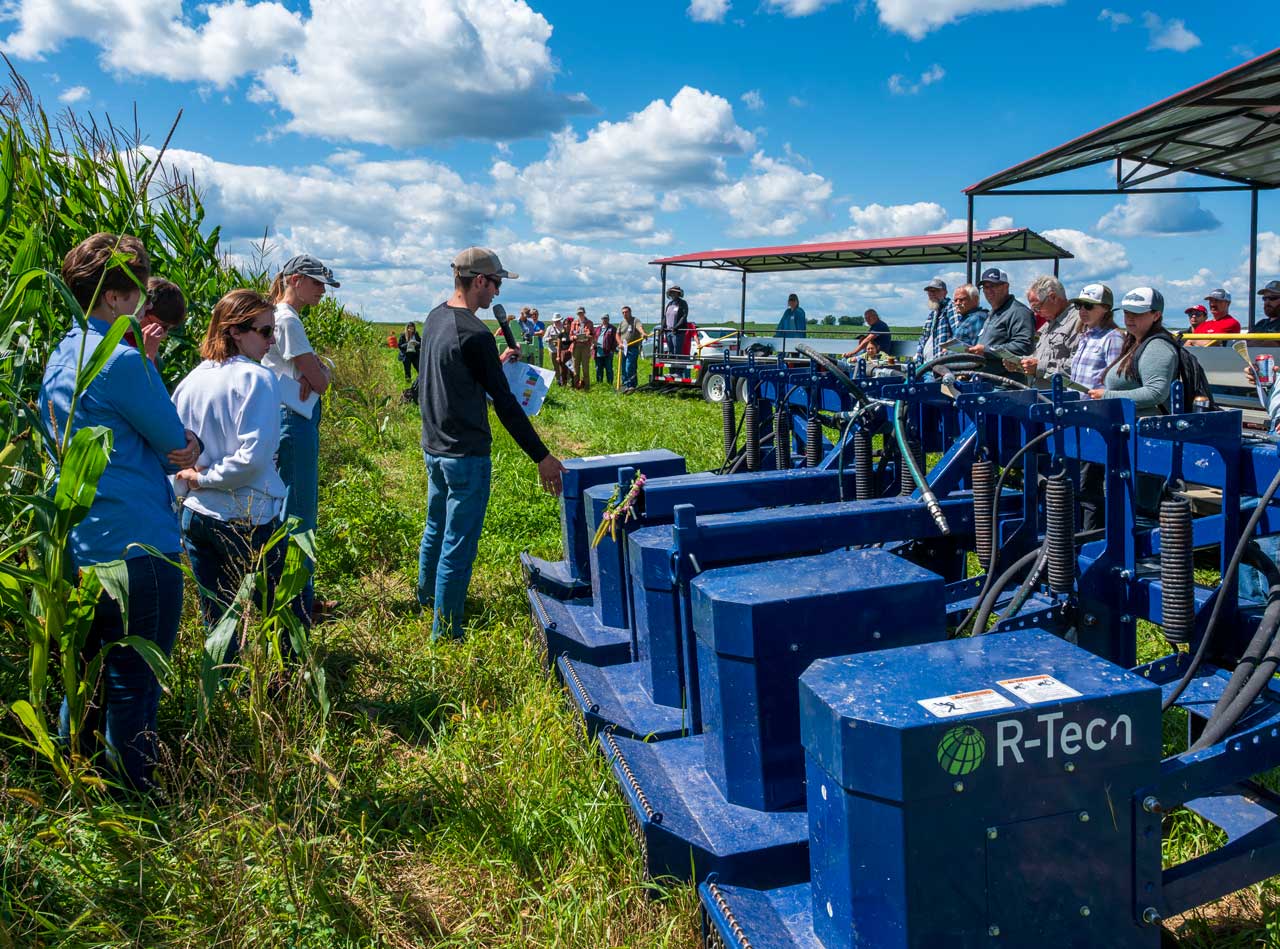
What’s the most surprising thing you’ve learned from collaborating directly with farmers in your research?
I’m always amazed by the different innovations that farmers come up with to address specific challenges on their operations that makes sense within their context. It’s especially fun to work with farmers who are willing to try new and innovate ideas they have on small areas of their farm and be comfortable with failure. From interesting weed management strategies, to finding ways to reduce inputs and costs, to modifications to machinery to allow them to do something new, I have learned a ton from farmer practices. Certainly, some of the research we do are experiments modified from practices that farmers have developed and are practicing on their own farms.
What podcast or book keeps you motivated during long days in the field?
I’m a big fan of Stuff You Should Know. The hosts present overviews of a wide range of topics including historical events, science, and about anything else you can think of in a fun a lighthearted way. It never fails to keep me entertained and learning new things while performing some repetitive task for many hours out in a field.
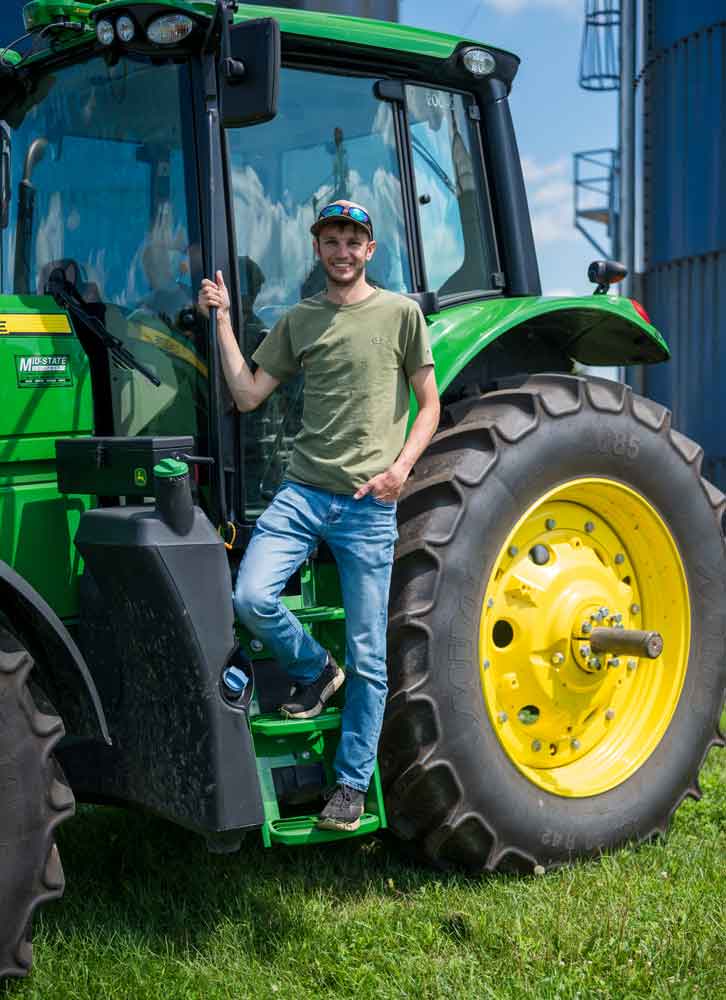
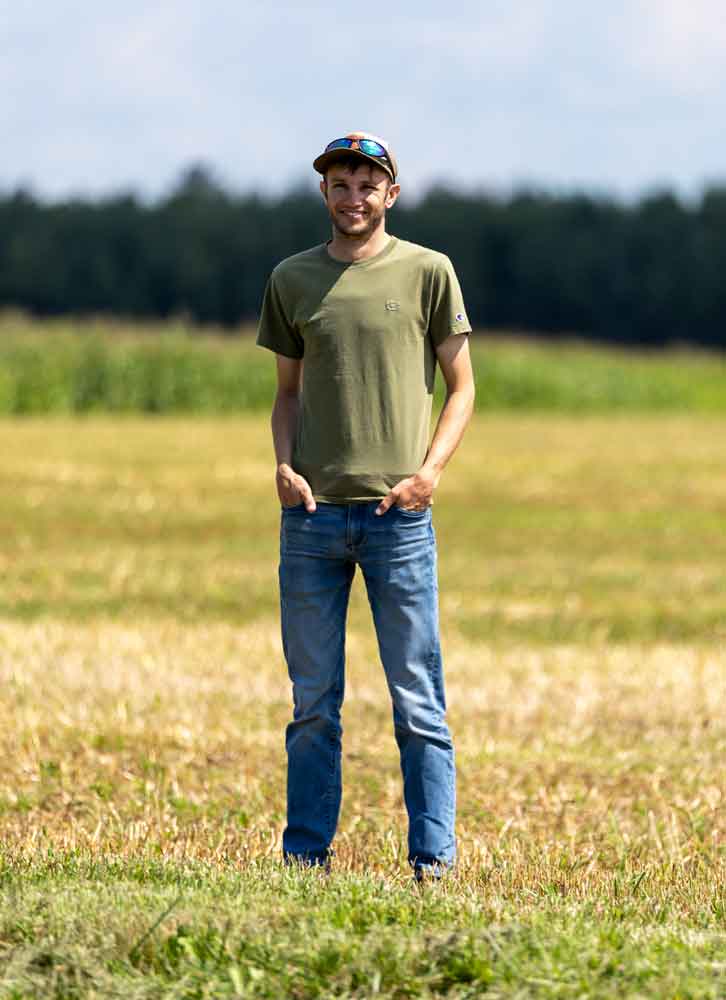
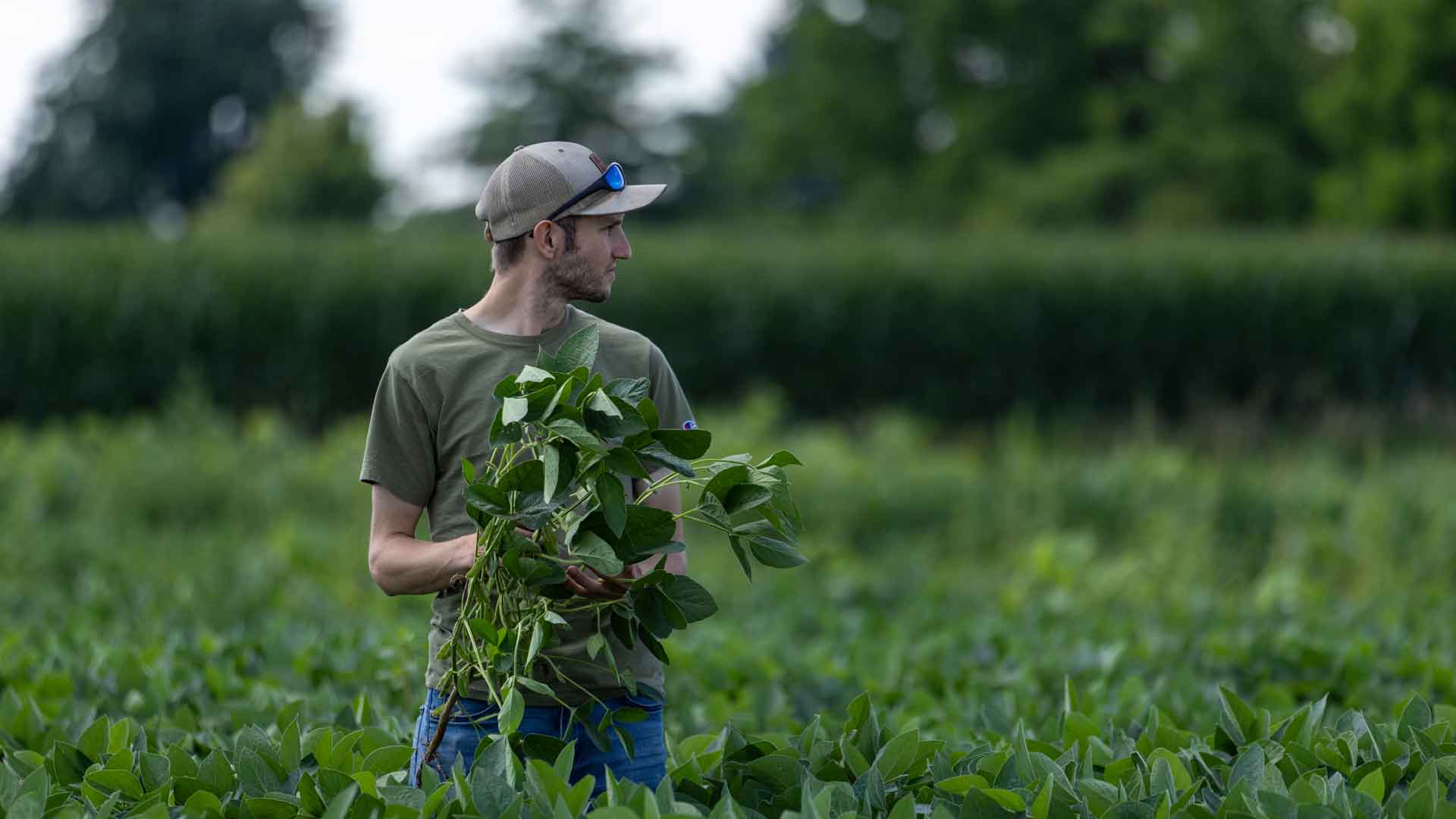
You lived in Cambodia during your early childhood—how has that experience influenced your perspective on agriculture and food systems?
My parents worked with an NGO as agricultural development workers which meant I spent 3 years living in rural Cambodia as a kid. While, just being a kid at the time, my main concern was whether I could fly my kite higher than the neighboring kids, being immersed in a culture and way of life, including agricultural systems and practices, that are vastly different than what is represented in the Midwest encouraged me to think beyond the assumptions that we take for granted. There are always multiple ways to go about things that can often achieve the same final objective. Ultimately, we need to be in touch with the values of the communities in which we are working to know how to best address challenges and work through tradeoffs in a productive way.
